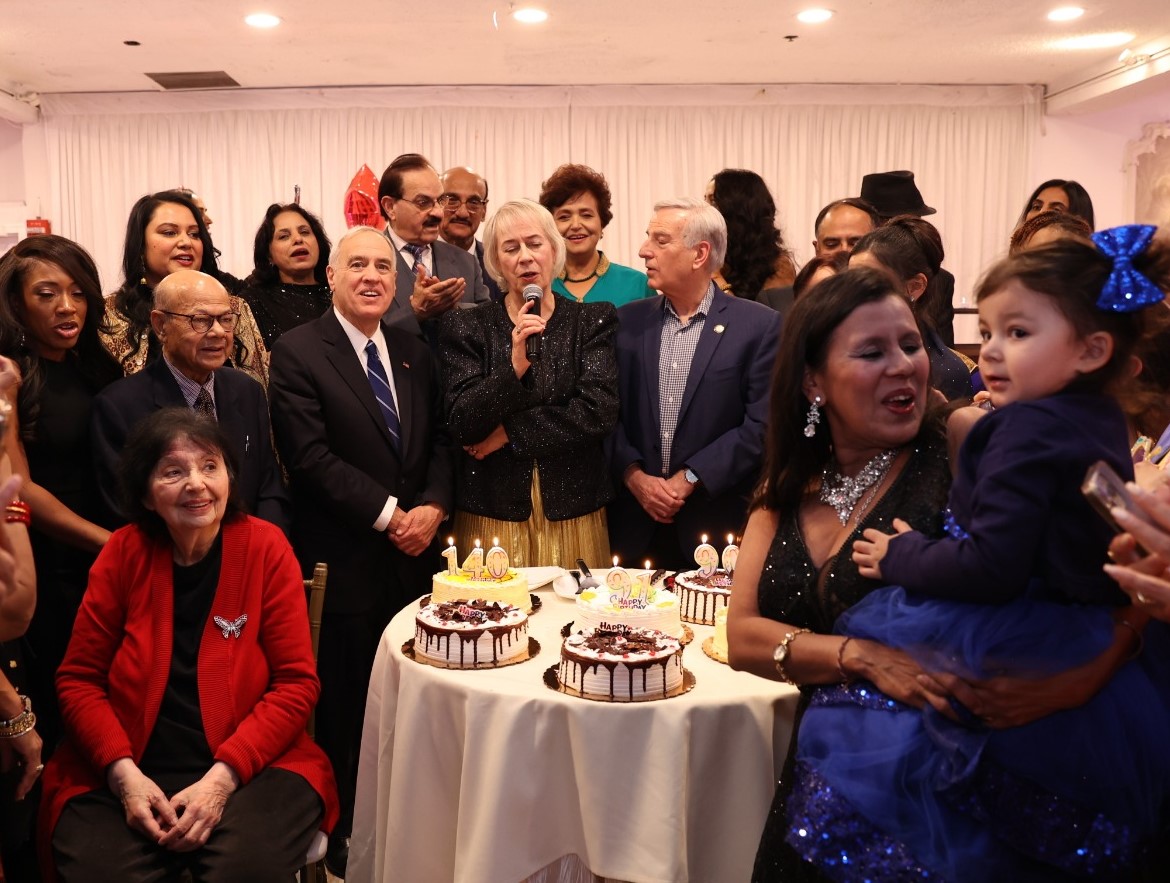By Jerry Tallmer
Sisterly collaboration combines book content, e-mail recollections
Never buy a red coat…
I know that Nora Ephron’s mother used to say this to Nora — because Nora once told me so; and if Phoebe Ephron, a forceful woman, said it to daughter Nora — then she presumably also used to say it to Nora’s sister Delia.
In any event, “Never buy a red coat” is one of the 40 or so arcane home truths of the “What My Mother Said” stop-the-show listings in “Love, Loss, and What I Wore” — Nora and Delia Ephron’s wildfire runaway hit at Off-Broadway’s Westside Theatre.
Here’s a smattering of what some other mothers said to some other daughters, as delivered from that stage by one or another of five remarkable rotating actresses:
I will not under any circumstances buy you a dress with pineapples on it.
Go right back upstairs and take that off.
Nice Jewish girls do not get their ears pierced.
What did you do to your hair?
Is that a tattoo?
Take that off, you look like a slut.
You look like a prostitute.
You look like a gypsy.
You look like a bag lady.
You look like a waitress in a Hungarian restaurant.
A tiara? You want a tiara? Where are you planning to wear a tiara?
“It’s all literally true,” Nora Ephron said of all the above, just as the reviews were coming in. “It all happened to somebody or other” — many somebodies across the country, much of it gathered by e-mail and Internet. “No fiction in it at all.”
Nora’s own confessional essay, “I Hate My Purse,” is one of the pillars of the show. Her purse and all the horrible Collier Brothers junk within it — from used Kleenexes to buzzing cell phones to ancient cheese sandwiches — all there right within reach except when you dig and dig and dig for them, “[As] Louis XIV might have put it but didn’t…le sac, c’est moi.”
Bullseye!
It is not the first time that novelist, essayist, reporter, screenwriter, movie director Nora Ephron — the girl who beat the system by being born into it — has written for the stage. The first time was “Imaginary Friends,” Nora’s dramatization of the lifelong truth-or-lies hate-hate relationship of writers Lillian Hellman and Mary McCarthy (a work that ran for two months at the Barrymore, on Broadway, as 2002 turned into 2003).
Her parents — and Delia’s, and Hallie and Amy Ephron’s — were Henry and Phoebe Ephron. They were two of the reigning Hollywood screenwriters-producers-directors of the 1940s into the 1960s — not to mention Broadway playwrights of, most notably, “Take Her, She’s Mine,” the SRO 1961 comedy about a teenage girl much like their own budding eldest daughter of a few years earlier.
Off-Broadway’s “Love, Loss, and What I Wore” began, in Nora’s words, “a long time ago when I read this little teeny book [of that title] by a woman named Ilene Beckerman. It was a completely charming autobiography of sorts, told entirely in terms of her clothes.
“I don’t mean to call her an ordinary woman, because she isn’t ordinary at all, but she’s had an extraordinary life…” which includes three husbands, several divorces, and five grown children plus one other child who died very young.
Quick excerpt from the book and the show:
Anyway, at midnight, I got very upset because I couldn’t find Harry. Then I saw him. He was kissing Penny. “Harry!” I said. And you know what he said? Of course you know what he said. He said: ‘It’s not what you think.’ But it was exactly what I thought. So that was that. I was twenty-one years old and I was going to be the youngest divorced person in America, except for Elizabeth Taylor.
The person talking there is Gingy — whose life story, or much of it, weaves in and out of “Love, Loss, and What I Wore.” In other words, Gingy is Ilene Beckerman herself, as fleshed out at the Westside by one or another razor-sharp actress (Tyne Daly, in the opening month’s cast).
Ilene Beckernan wrote the book just for her children, Ms. Ephron says, “but then someone showed it to a publisher,” and the next thing you know, it’s selling a hundred thousand copies.
“I read it, sent it to Delia” (with whom Nora wrote “You’ve Got Mail”) “along with a note: ‘I think we could make a play out of this, or if not exactly a play, then a piece of theater.’
“I hoped that when women saw it they would have the same reaction as I did to this weirdly interactive stuff. Reading about her prom dress might set you remembering your prom dress.”
Once Nora and Delia decided to go ahead, they got in touch with a lot of their friends, by an e-mail questionnaire asking for thoughts and words about boots, shoes, skirts, brassieres, blouses, coats, closets, mothers, anything.
And sometimes you get back answers like this:
By the time I got to Berkeley, where I was an art student, I was all boots all the time. Freshman year I had two pairs. One was golden brown, one was deeper brown, and I wore them with really, really short skirts…It was a really happy time of my life, but then, one night, when I was sleeping, a guy broke into my apartment and raped me.
Out of all the material that was coming in, woven together with excerpts from the book itself, Nora and Delia fashioned various sketches and monologues.
When, Nora, you write with your sister, who does what?
“We kind of split it down the middle. Sometimes she’s in the chair [at the keyboard], sometimes I’m in the chair. Some are hers, some are mine. Most of them are both of ours. Delia wrote the one on THIN and the one on high heels.”
Whatever it was, this something for the theater, they workshopped it — first out at Guild Hall, Bridgehampton, Long Island, and then, last winter, at producer Daryl Roth’s little DR2 Theatre off Union Square on East 15th Street.
“Seven Mondays, seven workshops, seven different casts — all these extremely funny women,”
Karen Carpenter, who had worked with Jack O’Brien at San Diego’s Old Globe Theatre, signed on as director. And that was that.
So, Nora, what’s next?
“What’s next!!? You mean besides THIS!!?? Well. I just had a movie come out two months ago. It’s called ‘Julie & Julia.’ ”
Oh yeah. That’ll do. But what were you wearing?
The cast: Tyne Daly, Mary Louise Wilson, Mary Birdsong, Lisa Joyce and Jane Lynch perform through November 15. From November 18 to December 13, the cast includes Kristin Chenoweth, Rhea Perlman, Rita Wilson, Lucy DeVito and Capathia Jenkins.



































